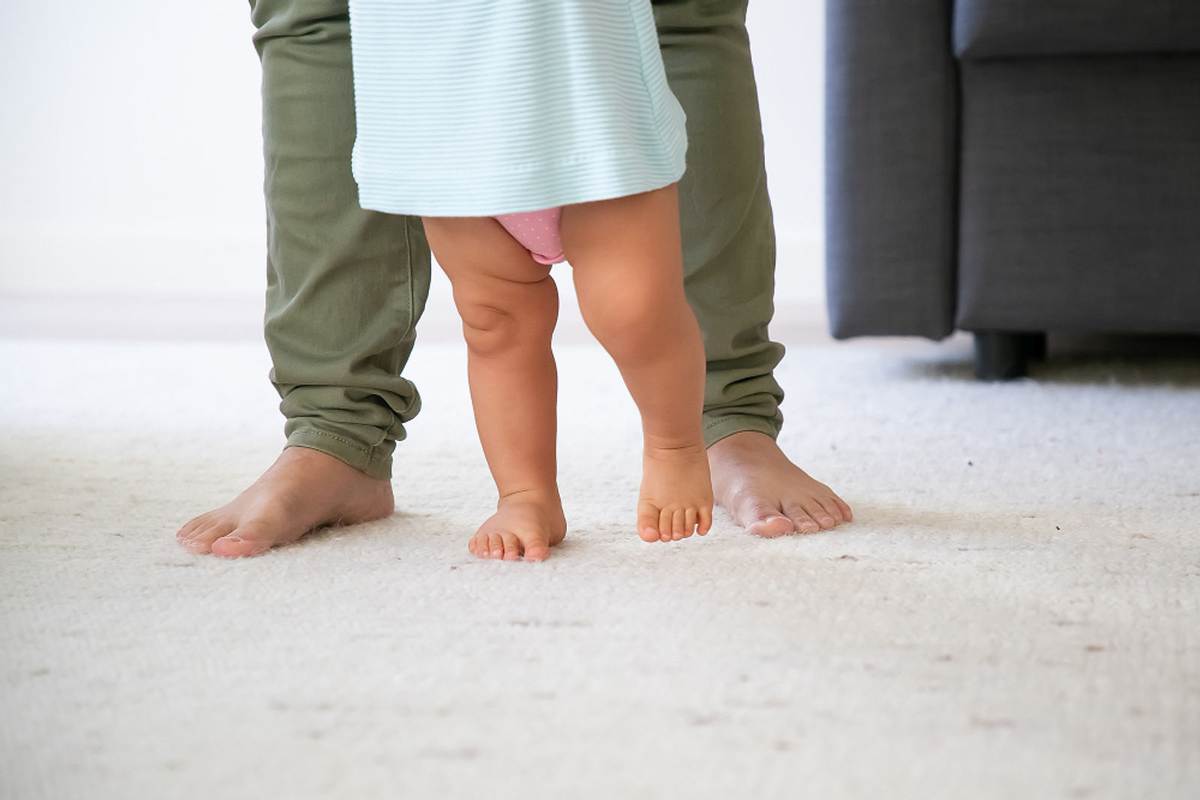Your Baby at Ten Months
At ten months old, your baby is thriving and becoming increasingly adventurous. With growing mobility and curiosity, this stage is packed with exciting milestones, from first steps to playful imitation. Your little one’s development continues to amaze, and you’re doing an incredible job supporting their growth and exploration.

Wow, double figures—baby is now 10 months old! It’s incredible to think how quickly time has flown and how much your little one has grown. At this stage, you’re likely to see an explosion of activity, curiosity, and developmental milestones as your baby continues to explore their world with increasing confidence and skill.
Sleep
By 10 months, your baby's sleep patterns will be well-established and quite similar to what they will be at 11 and 12 months. Ideally, they should be enjoying a full 12 hours of sleep overnight, with two naps during the day—one in the morning and another in the afternoon. In total, your baby will be getting around 14 hours of sleep each day.
Maintaining a consistent sleep routine is key to ensuring your baby gets the rest they need. A predictable bedtime routine, such as a warm bath, a story, and some quiet time, can help signal to your baby that it’s time to wind down for the night.
Communication
At 10 months, your baby might be mimicking your actions with increasing accuracy. You may notice them pretending to talk on a toy phone or sipping from a play cup. This imitation is a crucial part of their learning process, helping them to understand and replicate everyday activities.
They will also be developing their verbal skills, possibly babbling more and even attempting to say simple words. Engaging with your baby by talking to them, reading stories, and singing songs will support their language development and help them learn the rhythm and melody of speech.
Movement
Your little adventurer will be busy exploring and mastering their physical skills. At this stage, many babies can crawl confidently, pull themselves up to stand, and cruise along furniture. Some might even be taking their first tentative steps, although walking independently usually comes a bit later.
Playing with toys like stacking cups can be particularly enjoyable for your baby. These activities not only entertain but also help develop their fine motor skills and problem-solving abilities as they figure out how to fit smaller items into larger ones.
Feeding
At 10 months, your baby will likely be enjoying three meals a day alongside their regular milk feeds. Mealtimes can be a great opportunity for family bonding, so try to include your baby in family meals whenever possible. Breakfast might include wholegrain cereal or porridge, while lunch and dinner could consist of a balanced main course followed by fruit or yoghurt.
Introducing a variety of textures and flavours will help your baby develop their palate and encourage healthy eating habits. They might also be showing preferences for certain foods, so keep offering a range of options and enjoy watching their tastes evolve.
You – Ten Months Postpartum
How is your pelvic floor holding up? Throughout your pregnancy, you may have been diligent with pelvic floor exercises, but it’s important to continue these exercises now. A strong pelvic floor supports overall core stability and helps prevent issues such as incontinence.
Incorporate pelvic floor exercises into your daily routine—perhaps while boiling the kettle, waiting at traffic lights, or brushing your teeth. If you’re experiencing difficulties, don’t hesitate to consult your doctor. They may refer you to a physiotherapist who can provide tailored support and guidance.
This article has been written using the latest guidance and information from trusted sources, primarily the NHS. This information should not replace professional medical advice. Always consult with your healthcare provider for advice tailored to your personal health and circumstances.